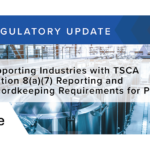
Environmental compliance is a critical aspect of business operations in today’s world. To ensure Round Rock operates in accordance with relevant regulations and standards, the company has established a robust auditing process. This article delves into the intricacies of Round Rock’s environmental compliance auditing, discusses its importance, and highlights the impact it has on the company’s sustainability efforts.
Understanding Environmental Compliance
Definition and Importance of Environmental Compliance
Environmental compliance refers to the adherence of businesses to laws, regulations, and standards that aim to protect the environment. It involves following specific guidelines and practices to minimize negative environmental impacts and promote sustainability. Compliance is not only ethically responsible but also crucial to maintaining a positive corporate image and ensuring business continuity.
Businesses that prioritize environmental compliance demonstrate a commitment to sustainable practices and responsible stewardship of natural resources. By proactively adhering to environmental regulations, companies can mitigate risks associated with non-compliance, such as legal penalties, reputational damage, and operational disruptions. Furthermore, environmental compliance can lead to cost savings through improved resource efficiency and reduced waste generation.
Key Elements of Environmental Compliance
Environmental compliance encompasses various aspects that businesses must address to ensure environmental responsibility. These elements include waste management, air and water pollution control, energy conservation, land use, and emissions reduction. By managing and integrating these factors into their operations, companies can minimize their ecological footprint and contribute to a healthier planet.
Effective waste management practices involve the proper handling, treatment, and disposal of waste materials to prevent environmental contamination and promote recycling. Air and water pollution control measures aim to reduce harmful emissions and effluents released into the atmosphere and water bodies, safeguarding ecosystems and public health. Energy conservation initiatives focus on optimizing energy usage, implementing renewable energy sources, and enhancing energy efficiency to reduce carbon emissions and combat climate change.
The Role of Auditing in Environmental Compliance
Purpose of Environmental Audits
Environmental audits are systematic evaluations conducted to assess an organization’s compliance with applicable environmental regulations and policies. The primary objective is to identify areas of non-compliance, potential risks, and opportunities for improvement. Audits provide Round Rock with valuable insights into its environmental performance and serve as a tool to drive positive change.
Environmental audits play a crucial role in enhancing Round Rock’s sustainability efforts. By conducting regular audits, the company demonstrates its commitment to environmental stewardship and responsible business practices. These audits not only help in identifying areas for improvement but also showcase Round Rock’s dedication to transparency and accountability in its operations.
Types of Environmental Audits
Round Rock employs different types of environmental audits based on its specific needs and regulatory requirements. Compliance audits evaluate whether the company is meeting all legal obligations. Management system audits examine the effectiveness of Round Rock’s environmental management systems and processes. Lastly, performance audits assess the environmental impact of specific operations or projects, focusing on initiatives like waste management or pollution control.
Each type of environmental audit serves a distinct purpose in Round Rock’s overall environmental compliance strategy. Compliance audits ensure that the company adheres to the complex web of environmental laws and regulations, avoiding potential fines and penalties. Management system audits help Round Rock streamline its environmental processes, leading to increased efficiency and effectiveness in achieving sustainability goals. Performance audits provide valuable data on the environmental performance of specific projects, guiding Round Rock in making informed decisions to minimize its ecological footprint.
Round Rock’s Approach to Environmental Compliance Auditing
Round Rock’s Environmental Policies and Regulations
Round Rock has developed comprehensive environmental policies and regulations that guide its operations. These policies ensure that the company adheres to all relevant laws and regulations while aiming to exceed minimum requirements wherever possible. By establishing clear guidelines, Round Rock sets a strong foundation for compliance and a culture of environmental stewardship.
Furthermore, Round Rock regularly reviews and updates its environmental policies to stay abreast of changing regulations and best practices in the industry. This commitment to continuous improvement demonstrates Round Rock’s dedication to environmental sustainability and responsible business practices. The company also conducts regular training sessions to educate employees on the importance of compliance with these policies, fostering a sense of accountability at all levels of the organization.
Auditing Process in Round Rock
The auditing process at Round Rock follows a structured approach to ensure consistency and effectiveness. It starts with scoping, where the audit objectives and boundaries are defined. Next, the audit team collects data through interviews, document reviews, and site inspections. The collected information is then analyzed and compared against applicable regulations and internal policies. Findings and recommendations are compiled into a comprehensive audit report.
Moreover, Round Rock acknowledges the importance of engaging stakeholders throughout the auditing process. Collaborating with internal teams, regulatory bodies, and even external auditors strengthens the validity and credibility of the audit findings. This collaborative approach also fosters transparency and keeps all parties informed and aligned.
Additionally, Round Rock goes beyond regulatory compliance in its auditing process by proactively seeking opportunities for environmental improvement. The audit findings are not only used to address non-compliance issues but also to identify areas where the company can enhance its environmental performance. By integrating sustainability goals into the auditing process, Round Rock demonstrates its commitment to environmental responsibility and long-term sustainability.
Challenges in Environmental Compliance Auditing
Common Obstacles in Compliance Auditing
Auditing environmental compliance can present various challenges. These obstacles range from obtaining accurate and reliable data to interpreting complex and constantly evolving regulations. Limited resources, competing priorities, and a lack of standardized auditing procedures can also hinder the effectiveness of the auditing process.
Overcoming Auditing Challenges
To overcome these challenges, Round Rock emphasizes the importance of investing in skilled and knowledgeable auditors with expertise in environmental regulations. Regular training and professional development programs ensure auditors stay updated on new requirements and emerging practices. Furthermore, implementing advanced monitoring and reporting systems streamlines the data collection process and improves accuracy.
Round Rock also recognizes the significance of comprehensive auditing frameworks that standardize procedures, making audits more efficient and consistent across the company. By continuously improving auditing practices and employing technology-driven solutions, Round Rock ensures it can effectively navigate through the challenges associated with environmental compliance auditing.
The Impact of Environmental Compliance Auditing
Benefits of Compliance Auditing to Round Rock
Environmental compliance auditing offers numerous benefits to Round Rock beyond mere legal compliance. By identifying areas of non-compliance and potential risks, audits help Round Rock mitigate environmental liabilities, avoid penalties, and maintain its social license to operate. Compliance audits also assist in improving operational efficiency, reducing waste generation, and identifying opportunities for cost savings.
Long-term Effects of Effective Auditing
The long-term effects of effective environmental compliance auditing extend beyond Round Rock’s immediate operations. By embedding sustainability into its core practices, Round Rock sets an example for other businesses, encouraging them to follow suit. Effective auditing also leads to continuous improvement, driving Round Rock’s commitment to reducing its environmental impact and enhancing its reputation as an environmentally responsible and sustainable company.+
As Round Rock exemplifies the importance of environmental compliance auditing, your business can also benefit from expert guidance in navigating the complexities of environmental regulations. ESE Partners is dedicated to responsibly moving businesses forward with innovative and sustainable solutions to environmental challenges. With our experienced team of environmental engineers and scientists, we offer tailored services in assessment, remediation, compliance, and more, all designed to improve your operations while enhancing community quality of life. Don’t let environmental compliance be an obstacle for your growth. Request A Proposal today and partner with ESE Partners for a brighter, sustainable future.








